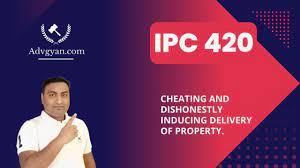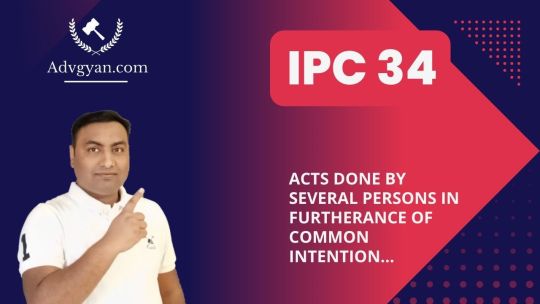Text
Indian Kanoon
Advgyan is an educational website that provides quick and detailed knowledge of Indian law, IPC, CrPC, Dowry Prohibition Act, Domestic Violence Act, etc. Users by visiting our website acknowledge that the information provided on this website is available for education and information purposes only which they have voluntarily sought to receive. Users use the information available on this website at their own discretion (Self desire). For more information about act visit our site!
Indian Kanoon
0 notes
Text
Considerations in Picking a Law School
Many individuals who aspire to become lawyers aim to enrol in a reputable law school. However, students may find that their time at law school differs greatly from their expectations. Knowing what to expect from Law School is crucial, especially if one is certain that a career in law is the only option open to them. Going to law school is an ambitious goal that calls for careful planning and a substantial investment of time and resources. Some graduates can enter fulfilling professions, while others will face competition in the labour market. Therefore, you should carefully consider the pros and cons of studying law at various institutions. Please see below the necessary IPC.
406 IPC
According to Section 406 ipc, "whoever commits the crime of criminal breach of trust is subject to the punishment of either imprisonment of either sort for a term that may extend to three years, or a fine, or both of these." The act of a person who is in a position of trust misappropriating or converting to his use the property that he is entrusted with, or dishonestly using or disposing of the property in violation of any direction of the law imposing a duty on him, or of any legal contract, express or implied, made with him, is considered a criminal breach of trust.
324 IPC
The Indian Kanoon specifies in Section 324 that anyone who knowingly causes harm with any dangerous instrument is subject to imprisonment of either description for a term which may extend to three years, a fine, or both. According to 324 ipcanything that can inflict serious injury or death qualifies as a dangerous instrument, as does anything that is extremely hot or cold, acidic or poisonous, corrosive or explosive, or even an animal. The severity of the penalty will be proportional to the seriousness of the crime.
341 IPC
In accordance with Article 341 ipc, those who unlawfully restrain another person are liable to a fine of up to 500 rupees, a period of simple imprisonment of up to one month, or both.
Marriage in Hinduism Act of 1955
To protect the rights of Hindu couples who have entered into the sacred bond of marriage by any rite, the Hindu marriage act 1955 was passed. Since there are several ways for a man and a woman to perform this religious act, the legislation does not specify the type of ceremony. After witnessing multiple fraud cases in the name of marriage that left both men and women terrified or embarrassed, this conduct was proposed. All those of the Hindu, Jain, Sikh, and Buddhist faiths who are not Muslims, Christians, Parsis, or Jews are required to comply with this regulation. Anyone who was born into a Hindu family or who professes Hinduism is required to abide by this regulation. Section 2 of the Hindu Marriage Act defines the term "Hindu" entirely.
Conclusion
While it's true that law school sn't easy, it also has the potential to be one of the most gratifying times of your life. It can provide you with the work ethic, professional relationships, reading/writing skills, networking opportunities, and confidence to succeed in any career you pursue.
0 notes
Text
Indian Kanoon
Advgyan is an educational website that provides quick and detailed knowledge of Indian law, IPC, CrPC, Dowry Prohibition Act, Domestic Violence Act, etc. Users by visiting our website acknowledge that the information provided on this website is available for education and information purposes only which they have voluntarily sought to receive. Users use the information available on this website at their own discretion (Self desire). For more information about act visit our site!
Indian Kanoon
0 notes
Text
Indian Kanoon
Advgyan is an educational website that provides quick and detailed knowledge of Indian law, IPC, CrPC, Dowry Prohibition Act, Domestic Violence Act, etc. Users by visiting our website acknowledge that the information provided on this website is available for education and information purposes only which they have voluntarily sought to receive. Users use the information available on this website at their own discretion (Self desire). For more information about act visit our site!
Indian Kanoon
0 notes
Text

Indian Kanoon
Advgyan is an educational website that provides quick and detailed knowledge of Indian law, IPC, CrPC, Dowry Prohibition Act, Domestic Violence Act, etc. Users by visiting our website acknowledge that the information provided on this website is available for education and information purposes only which they have voluntarily sought to receive. Users use the information available on this website at their own discretion (Self desire). For more information about act visit our site!
Indian Kanoon
0 notes
Text
Indian Kanoon
Advgyan is an educational website that provides quick and detailed knowledge of Indian law, IPC, CrPC, Dowry Prohibition Act, Domestic Violence Act, etc. Users by visiting our website acknowledge that the information provided on this website is available for education and information purposes only which they have voluntarily sought to receive. Users use the information available on this website at their own discretion (Self desire). For more information about act visit our site!
Indian Kanoon
0 notes
Text
crpc bare act
CrPC Bare Act refers to original text of the Code of Criminal Procedure. CrPC Code of Criminal Procedure is known as Criminal Procedure Code. The CrPC outlines the procedures for arrest, bail, search and seizure, investigation, prosecution, and appeals. It also defines the roles and responsibilities of various stakeholders or officials in the criminal justice system, such as police, lawyers, judges, and witnesses. For more details visit our site!
0 notes
Text
Fundamentals of Natural Justice and the Criminal Procedure Code
The acronym "CrPC" stands for "criminal procedure code," another name for the Code of Criminal Procedure. The law was passed in 1973, and its provisions began to take effect on April 1, 1974. The criminal process code governs trials in criminal cases. It explains how to file a complaint, how a trial and an order are conducted, and how to appeal a final decision.
The primary goal of CrPC is to ensure that an accused individual is afforded a fair trial and in accordance with the notion of natural justice. The purpose of this code is to standardize how a crime committed under any criminal legislation is investigated, inquired into, and tried in a court of law. However, its acts are different from IPC Bare Act.
The 37 chapters of this law are divided into 484 individual sections. No specific statute or local law, or the authorities or procedures specified by any such law, conflicts with CRPC.
Applications of Criminal Procedure Code:
Fair Trial:
An unbiased and independent court of law must hear all cases, and everyone has the right to a fair trial. A defendant enjoys the presumption of innocence unless proven guilty. Every defendant is guaranteed the opportunity to hire the attorney of his choosing. Each defendant has a right to due process, and the ex-parte order should not be issued without first hearing their side of the story.
High Courts oversee Judicial Magistrates:
State High Courts oversee all Judicial Magistrates. The governor, public service commission, and high courts choose a first-class judicial magistrate. In each district, the high courts can designate a first-class judicial magistrate as chief. High courts can appoint more chief metropolitan magistrates for metropolitan courts.
The structure of India's criminal courts:
The Criminal Procedure Code (CrPC) establishes a system of criminal courts with consistent jurisdiction, powers, and functions across the Indian territory. Separation of powers ensures that the judicial system may function without political interference from either the legislature or the executive branch.
Legal protections for the accused:
If an accused person cannot afford legal representation, that person is eligible for free legal aid services. A guilty plea and payment of the fine by mail as directed on the summons are acceptable alternatives to personal appearance in small claims court. A defendant has the right to seek medical attention to bolster his defense.
Trial Process:
Unless something else happens, the hearing process will be the same for both summary cases and summons cases. The High Courts and Sessions courts have revisional jurisdiction. Warrant cases involve offences punishable by death, life imprisonment, or more than two years in jail, while summons subjects involve lesser offences. The court can also immediately punish perjurers.
Conclusion:
The criminal procedure law guarantees defendants a fair trial by an impartial and neutral Tribunal. However, the Hindu succession act doesn't include in CrPC. The main difference between the CrPC bare act and the IPC is that the IPC spells out the rules for all crimes and the fines for them. The Code of Criminal Procedure tells how charges are made, while the Code of Criminal Procedure tells the charges for each offence.
0 notes
Text
Considerations in Picking a Law School
Many individuals who aspire to become lawyers aim to enrol in a reputable law school. However, students may find that their time at law school differs greatly from their expectations. Knowing what to expect from Law School is crucial, especially if one is certain that a career in law is the only option open to them. Going to law school is an ambitious goal that calls for careful planning and a substantial investment of time and resources. Some graduates can enter fulfilling professions, while others will face competition in the labour market. Therefore, you should carefully consider the pros and cons of studying law at various institutions. Please see below the necessary IPC.
406 IPC
According to Section 406 ipc, "whoever commits the crime of criminal breach of trust is subject to the punishment of either imprisonment of either sort for a term that may extend to three years, or a fine, or both of these." The act of a person who is in a position of trust misappropriating or converting to his use the property that he is entrusted with, or dishonestly using or disposing of the property in violation of any direction of the law imposing a duty on him, or of any legal contract, express or implied, made with him, is considered a criminal breach of trust.
324 IPC
The Indian Penal Code specifies in Section 324 that anyone who knowingly causes harm with any dangerous instrument is subject to imprisonment of either description for a term which may extend to three years, a fine, or both. According to 324 ipcanything that can inflict serious injury or death qualifies as a dangerous instrument, as does anything that is extremely hot or cold, acidic or poisonous, corrosive or explosive, or even an animal. The severity of the penalty will be proportional to the seriousness of the crime.
341 IPC
In accordance with Article 341 ipc, those who unlawfully restrain another person are liable to a fine of up to 500 rupees, a period of simple imprisonment of up to one month, or both.
Marriage in Hinduism Act of 1955
To protect the rights of Hindu couples who have entered into the sacred bond of marriage by any rite, the Hindu marriage act 1955 was passed. Since there are several ways for a man and a woman to perform this religious act, the legislation does not specify the type of ceremony. After witnessing multiple fraud cases in the name of marriage that left both men and women terrified or embarrassed, this conduct was proposed. All those of the Hindu, Jain, Sikh, and Buddhist faiths who are not Muslims, Christians, Parsis, or Jews are required to comply with this regulation. Anyone who was born into a Hindu family or who professes Hinduism is required to abide by this regulation. Section 2 of the Hindu Marriage Act defines the term "Hindu" entirely.
Conclusion
While it's true that law school sn't easy, it also has the potential to be one of the most gratifying times of your life. It can provide you with the work ethic, professional relationships, reading/writing skills, networking opportunities, and confidence to succeed in any career you pursue.
0 notes
Text
ipc 420 punishment
Section 420 IPC punishment for Cheating the purpose of this IPC Section 420 is to protect individuals from being cheated Is 420 IPC Bailable or Not. Here users information available on this website at their own discretion (Self desire). Advgyan is an educational website that provides quick and detailed knowledge about Indian law like Constitution of India, IPC, CrPC, Dowry Prohibition Act, CPC, Banking Act etc. Users by visiting this website acknowledge that the information provided on this website is available for education and information purposes only which they have voluntarily sought to receive.
ipc 420 punishment
0 notes
Text

302 ipc
Here we will see Section 302 IPC Indian Penal Code Punishment for murder — whoever commits murder shall be punished with death or imprisonment for life, and shall also be liable to fine. Users use the information available on this website at their own discretion (Self desire). Any transmission, receipt or use of the information available on this website does not create any liability or any relationship with us. For more details visit our site!
302 ipc
0 notes
Text

ipc 420 punishment
Section 420 IPC punishment for Cheating the purpose of this IPC Section 420 is to protect individuals from being cheated Is 420 IPC Bailable or Not. Here users information available on this website at their own discretion (Self desire). Advgyan is an educational website that provides quick and detailed knowledge about Indian law like Constitution of India, IPC, CrPC, Dowry Prohibition Act, CPC, Banking Act etc. Users by visiting this website acknowledge that the information provided on this website is available for education and information purposes only which they have voluntarily sought to receive.
ipc 420 punishment
0 notes
Text
Understand Your Rights with Information about Different IPC Sections
In violation of section 415 of the IPC. Crimes of a more serious nature, such as deceiving another person into delivering property or interfering with valuable security, are defined, and ipc 420 punishment.

To rephrase, Section 420 ipc only applies to serious instances of cheating. Section 417 establishes a criminal penalty for any act of fraud or dishonesty. In contrast, dishonest inducement involving property or valued security is expressly punished under Section 420.
Proving deceit is crucial for a Section 420 prosecution. Deception, in popular usage, refers to the act of purposely fooling another person into believing a falsehood. This intentional guiding might take the form of either direct words or more subtle actions. The terms of a transaction may be either explicit or implicit. However, the specific elements that make to deceit are case-specific.
Making an assurance or representation with the dishonest or fraudulent intent to hide facts is an offense under Section 420. To convict, prosecutors must show the defendant knew or should have known that their statement was untrue. The representation must also have been made deliberately with the aim of misleading the target. As explained in Section 415, lying about anything is a form of deception. This kind of secrecy can be used even in contexts when speaking out is not against the law.
Purposeful manipulation
For an action to qualify under this criterion, there needs to be a purpose to do harm to another person. When the induced was not duped, the action to the inducer's benefit would not have occurred. There must be actual or potential harm to the person's body, mind, reputation, or property as a result of this inducement.
Bad faith re-creation
In order to commit the crime of cheating, men’s rea is required. To cheat is to make a deliberate and intentional misrepresentation. Therefore, the individual creating the deception must be aware that it is untrue at the time it is created.
If talking about the death punishment then it is specified for murderers in Section 302 ipc. Punishment is meant to make the offender a better person and deter them from doing the same crime again. However, there are some extremely serious offenses that warrant the ultimate penalty of death. The term for this is "the death penalty." The use of the death penalty dates back centuries.
Punishment for willfully inflicting injury is addressed under Section 323 of the IPC. Whoever intentionally injures another person is subject to a fine of up to 1000 rupees or a jail term of up to one year, or both. Any harm caused by any poison, acidic substance, explosive substance, fire, hot substance, or any acid or alkali may result in higher penalty.
The following are the actions that can be taken when filing a complaint for a violation of section 323 ipc of the Indian Penal Code.
Give the relevant section number from the IPC that was broken. Punishment for willfully inflicting harm is addressed in Section 323.
0 notes
Text

34 ipc
Section 34 of the Indian Penal Code (IPC 34) states that “Acts done by several persons in furtherance of common intention.” that is when a criminal act is committed by several individuals here Advgyan is an educational website that provides quick and detailed knowledge about Indian law like Constitution of India, IPC, CRPC, Dowry Prohibition Act, CPC, Banking Act etc. For more details visit our site!
34 ipc
0 notes
Text
Important IPC Sections That You Should Know
The Indian Penal Code (IPC) is the definitive and official source for India's criminal law. It is used largely to establish several tenets of criminal procedure. The government enacted the CrPC Act 1973, also known as the Code of Criminal Procedure, and the Indian Evidence Act when it deemed a need for them during criminal proceedings.
Whether the offender should receive the death penalty, a fine of one thousand rupees, or be released because they are innocent of the crime.
Until the implementation of the Indian Penal legislation in Jammu and Kashmir State in accordance with Article 370 of the Constitution of India, the Ranbir Penal Code served as the primary criminal legislation in the state. However, the Union Territories of Jammu and Kashmir Reorganization bill has now been split between the Rajya Sabha and the Lok Sabha. Therefore, the Ranbir Penal Code has been abolished and the International Penal Code (IPC) has taken effect in all areas.
All Indian citizens should be familiar with the following sections:
In accordance with Section 297 of the Indian Penal Code, a person is subject to imprisonment for up to 6 months and/or a fine of 1000 Rs or with both if they are found guilty of reckless driving, since its basic sense necessitates that it is not limited to controlling a vehicle or that it is likely to result in hurt or collision to any other person.
Workers who are presumed to be operating machinery under Section 287 of the Indian Penal Code are reminded of the need for extreme caution when handling explosives under Section 286, of the dangers of working with combustible materials or fire under Section 285, of handling poisonous substances under Section 284, of caring for animals without proper supervision under Section 289.
To intentionally destroy or damage a house of worship with the aim of mocking any religion is a serious crime under Section 295 of the Indian Penal Code. There are some other IPC sections like section 34 ipc or 34 ipc and 406 ipc that you should understand.
Any person who intentionally harasses or disturbs a congregation engaged in religious worship or a ritual promoting religious worship, or who uses words, gestures, or sounds that are offensive to the religious feelings of another, is guilty of an offense under Section 296 of the Indian Penal Code.
Punishment for violations of Section 296 of the IPC may include up to one year in prison, a fine of up to $10,000, or both. This punishment is outlined in Section 298 of the IPC.
Criminal organizations or individuals who knowingly distribute or manufacture counterfeit goods or property with the purpose to defraud are subject to the penalties outlined in Section 420 of the Indian Penal Code. If you want to know 420 ipc bailable or not, you should consult with a professional lawyer. The offender will face a fine or prison time of up to 7 years, with 420 ipc punishment, it is depending on the severity of the crime.
1 note
·
View note